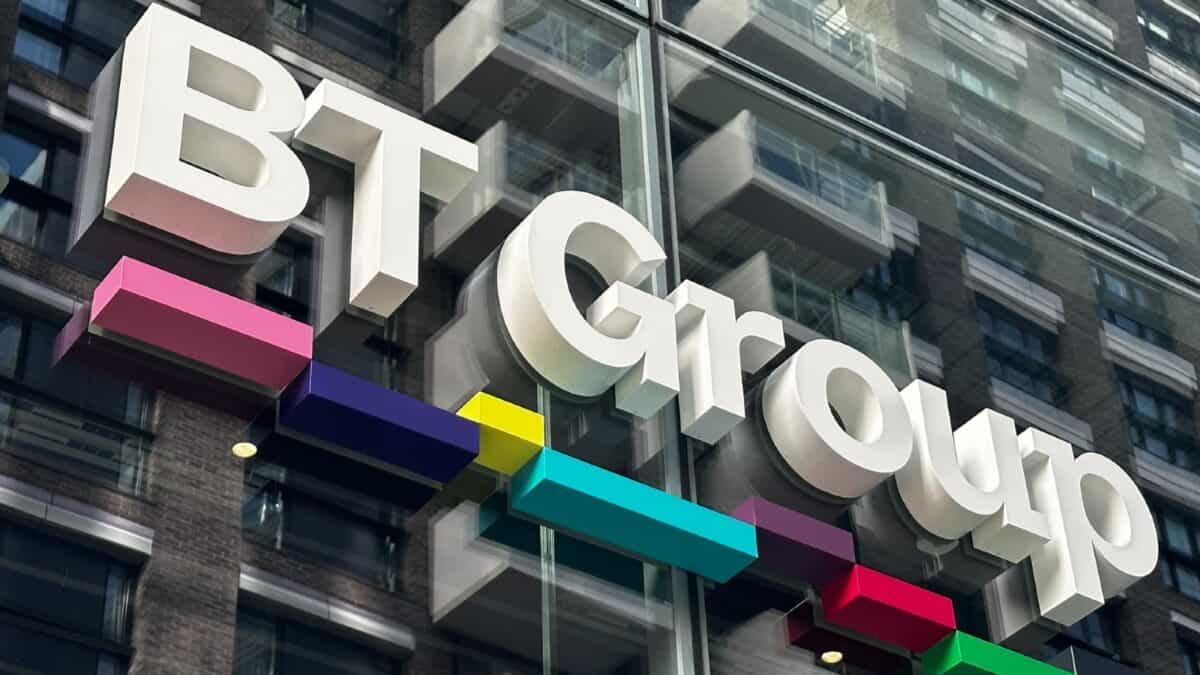Shareholders do not seem to have been hanging up on BT (LSE: BT.A). The telecoms giant has been a disappointing share over the long term, losing 28% of its value over the past five years. In the past couple of months though, the BT share price has soared 35%.
Add to that an attractive 5.8% dividend yield and I reckon the share could still grab many investors’ attention. Here is my take.
Weak results
The company’s full-year results were published since April, but they would hardly merit pushing the BT share price up to that extent.
There were a lot of wrong numbers for a healthy business. Revenues grew 1%, profit after tax plunged over half and normalised free cash flow fell 4%.
Profits and free cash flow falling are rarely a sign of a healthy, growing business, in my view. Combined with the weak revenue growth, they indicate the reality that BT is a mixed bag. Its Openreach division is still in growth mode while the legacy business and consumer divisions are in long-term managed decline (though in fairness, consumer revenues grew 4% last year).
The dividend grew 3.8% but is still 48% lower than it was in 2019, which in turn was already 3% lower than it had been a decade before.
Potential bright spots
Still, while those results do not look good, the BT share price has likely jumped for a reason. Have I got my wires crossed?
A new chief executive is a new broom and some investors are optimistic she can sweep the company into a more satisfying state.
The company achieved a £3bn cost and transformation package a year ahead of the four-year schedule. Importantly, the company said it has passed “peak capex” on its full fibre broadband rollout. In other words, Openreach capital expenditure will hopefully fall from here, potentially boosting profits.
Sensing a potential bargain, value hunters have swooped in, pushing up the share price.
Why I’m hesitant
But wait a minute. The £3bn cost saving programme is complete. Yet profits crashed and free cash flows fell. If that is what the results look like after the cost saving programme, maybe it is not the medicine the company needed.
Meanwhile, net debt continued its uphill march, hitting £19.5bn. That is substantially bigger than the company’s current market capitalisation of £13.9bn.
Meanwhile, legacy pension obligations that have long been a money pit continued to have a negative impact on profits. Indeed, pension interest expense was specifically cited as one reason for a 31% fall in pre-tax profit.
Jam tomorrow?
From a contrarian value perspective, I think the investment case here is the same as it has long been. Demand remains high and BT has unrivalled assets, from its network to its customer base.
But that has been true for years, if not decades, already – and the long-term performance of the BT share price has been dismal.
Instead of taking a contrarian approach of trying to buck the market trend, I ask myself whether buying a share would allow me to invest in an outstanding business at an attractive price. On that basis, BT does not make the cut for my portfolio.







